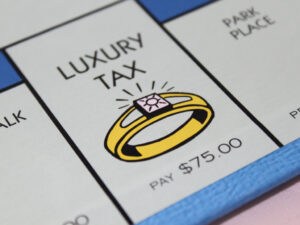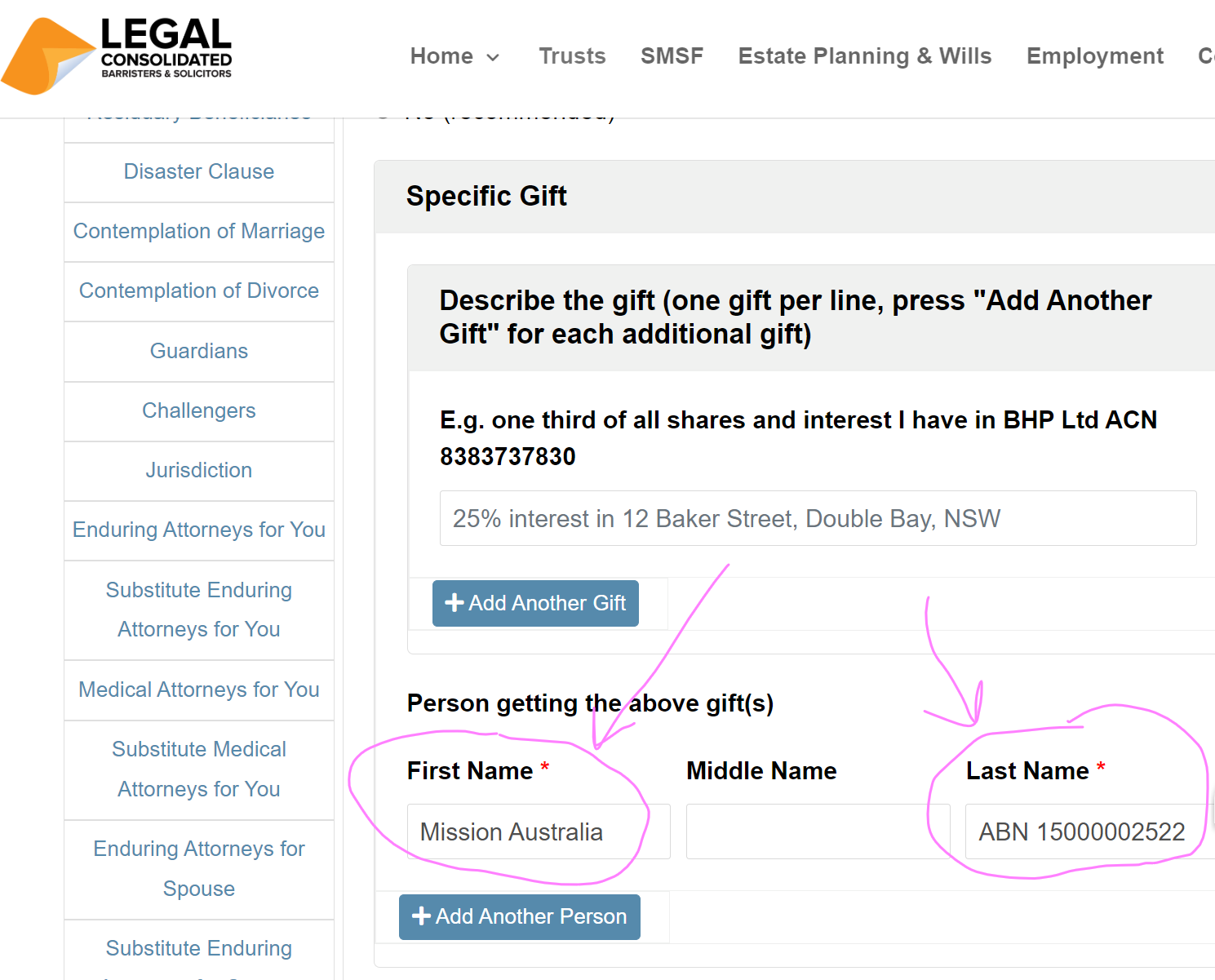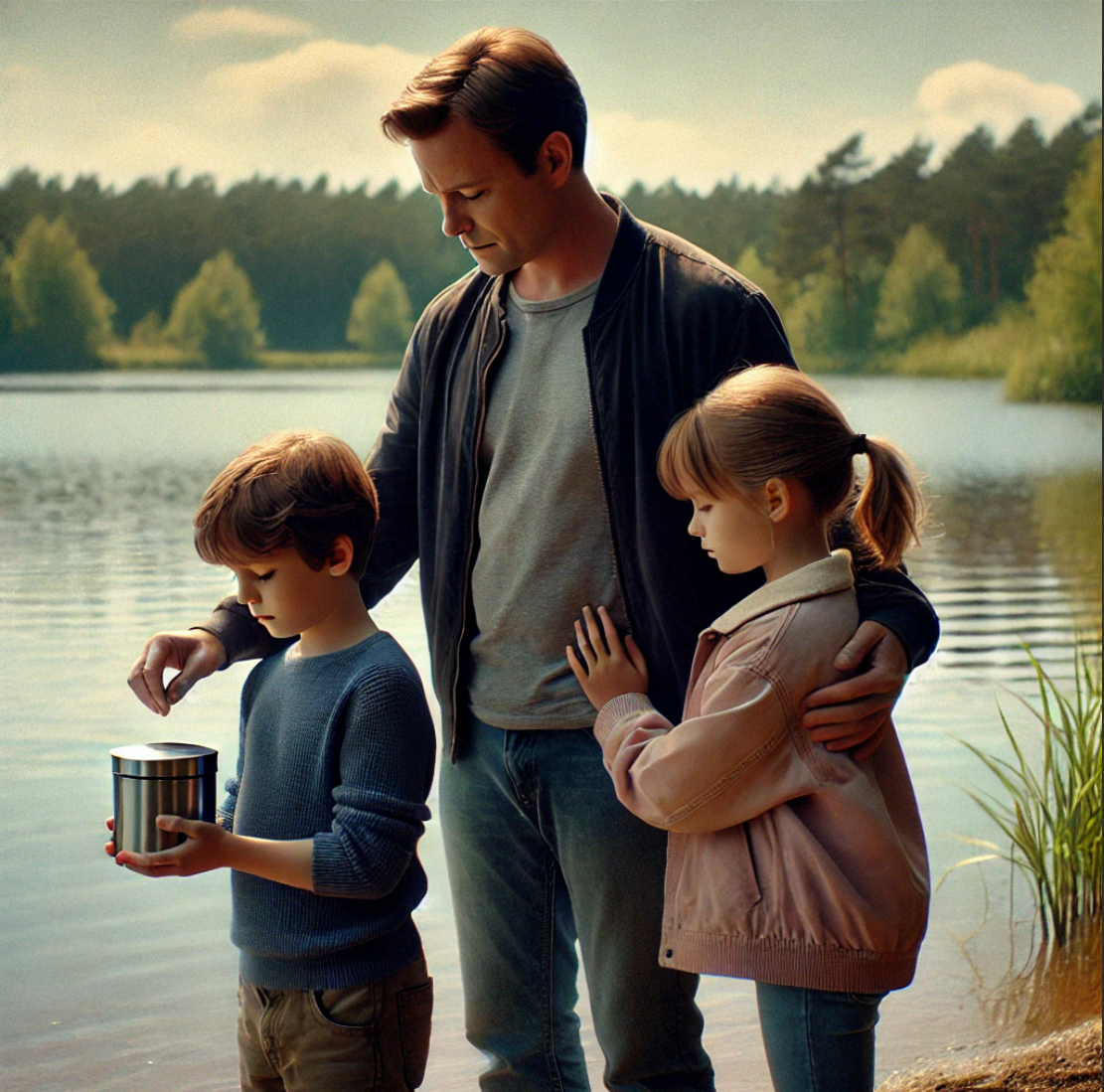Capital Gains Tax on dead people’s jewellery – CGT death duty on a wedding ring
Sometimes people put a Specific Gift in their Will. For example, ‘my wedding ring to my daughter’. The result? CGT death duty on that wedding ring. At death, your Will is lodged in the Probate Office. At that point, your Will is a public document. Both the press and the ATO get a copy of your Will. Because the wedding ring was mentioned in the Will, the ATO watches what the daughter does with your ring. Does she give it back to her dad? Does she give it to her own daughter who is getting married? Either way, the ATO demands Capital Gains Tax on the daughter’s ‘disposal’ of the ring. This is the case even though the ‘disposal’ was a gift. She suffers CGT ‘death duty’ on a wedding ring.CGT death duty on specific gifts like a wedding ring – why?

Don’t put Specific Gifts in your Will. CGT death duty on a wedding ring is the outcome. Leave everything as a percentage. E.g. All to spouse & then children equally.
‘A capital gain or capital loss you make from a collectable is disregarded if the first element of its cost base, or the first element of its cost if it is a depreciating asset, is $500 or less.’
A marriage ring received as a gift attracts capital gains tax because a ring qualifies as a capital gain asset. A Capital gain asset is defined in s 108-5(1) to include any “any kind of property”. The disposal of such a ring may be subject to CGT because CGT applies to non-exempted gains made from a capital gain event in relation to a capital gain asset.Is a wedding ring a ‘collectable’? Specific gifts in Wills are bad
Section 108-10(2) states that ‘a collectable is … artwork, jewellery, an antique, or a coin or medallion’. A wedding ring falls under the ambit of Section 108-10 Subsection 2(a) because it qualifies as jewellery or antique rather than Subsection 3. This means that if a ring’s value is above $500, it will be subject to CGT death duties Section 118.10(1).How much CGT is death duty on a wedding ring?
You only pay CGT on the ‘gain’. For example, you buy a capital item for $1. You then sell it for $3. Your capital gain or profit is $2. You put the $2 on your tax return as a capital gain. You pay CGT on the $2. My clients tell me that a piece of jewellery generally devalues 90% at the time of purchase. Therefore, a $20,000 engagement ring is worth about $2,000 when you slip it on your wife’s finger. In that case, your wife has acquired the ring for $2,000. Your wife’s cost base is $2,000. When your wife dies the person that gets her ring inherits her cost base of $2,000. Say your daughter gets the ring through the Will. Your daughter acquired the ring for $2,000. Your daughter inherits her mother’s cost base. Now let’s say your daughter gives the ring away, for free. She must calculate CGT on the ring’s ‘market value’. The ‘market value’ is not the cost base amount of $2,000. Rather the ‘market value’ is the value of the ring the day that your daughter gave it away. Let’s say that the ring is now worth $10,000. Your daughter got the ring for $2,000. When she gave it away it was worth $10,000. Your daughter made an $8,000 capital gain from ‘disposing’ of the ring. That needs to go on her tax return.Example of specific gift in a Will:
- Mum ‘acquires’ the ring for $2,000 – from her husband at their wedding ceremony.
- Mum dies leaving the ring to her daughter in her Will. The daughter has ‘acquired’ the ring for $2,000.
- The daughter then gives the ring to another family member. At that time the ring is worth $10,000. $10k – $2k = $8k. The daughter has made a ‘profit’ of $8,000. She pays CGT on the $8,000 profit (‘gain’).
Reduce the profit from the Will maker’s holding costs.
What if the dead wife and her husband had borrowed money to pay for the ring? Is the interest deducted from the ‘profit’? Usually, but not in this instance. There is a special little rule in the Tax Act. You are not allowed to take the cost of the interest repayments of the profit you made. See section 108-17. The cost of insuring the ring all these years by both the dead mum and then her daughter is also not taken off the profit.But it was a gift in a Will. How do I work out the ‘market value’ of a dead person’s wedding ring?
Dead mum received the ring for a deemed $2,000. When she died her daughter inherited the ring’s $2,000 cost base. But by the time the daughter hands the ring to her own daughter the ‘market value’ of the wedding ring shoots up to $10,000. Does ‘market value’ apply? Section 112-5(2) states:‘The first element of your cost base and reduced cost base of a CGT asset you acquire from another entity is its market value (at the time of acquisition) if:
(a) you did not incur expenditure to acquire it, except where your acquisition of the asset resulted from:
(i) CGT event D1 happening; or
(ii) another entity doing something that did not constitute a CGT event happening; or
(b) some or all the expenditure you incurred to acquire it cannot be valued; or
(c) you did not deal at arm’s length with the other entity in connection with the acquisition.’
The gift was on a non-arm’s length basis (‘Love’ is not commercial). The deemed ‘disposal’ value is the market value of $10,000. The daughter’s profit (gain) was $8,000. For more information see Dr Brett Davies’ doctoral thesis on the ‘market value’ rule.Specific Gifts in Wills
Specific Gifts, like jewellery, cars, and cash, in Wills are generally not helpful for CGT purposes. This is because:1. No one knows what they own at the date of their death. Therefore, a Specific Gift often delivers undesirable results. Instead, it is better to leave everything as a percentage to the Residuary Beneficiaries. For example:
(a) everything to my spouse;
(b) but if my spouse dies before me then, everything to my children equally, 50% and 50%.
Therefore, you leave it up to your spouse and children to work out what to do with your jewellery, Lladro statues, favourite car, and tools in the garage.
Stop ruling from the grave.
Residuary Beneficiaries are better than Specific Gifts.
To understand why start building your Will here. And read the hints on Estate Planning.
2. Documenting assets in your Will, is a good thing because it defines the assets that are the subject of a Will but it also alerts the government and the public as to what you own, raising a question whether such assets are taxable.
Start building your Will here to see why.Are Specific Gifts in Wills fair and equitable?
You have $2m in shares. You have $2m in your family home. You leave your son the shares. You leave your daughter the house. Twenty years later you die. The shares are now worth only $500k. The family home is now worth $4m. That may well be unfair. You decided to rule from the grave and your Will arguably resulted in unintended unfairness.The residuary beneficiary pays the tax on the specific gifts in Wills
You are worth $3m. In your Will, you give your son the factory. It is worth $1.5m. The Wills requires that it must be sold. You give your daughter the residuary estate worth about $1.5m. You die a few months later. Everything is equal. However, there is a Capital Gains Tax on the factory of $700k. Who pays the CGT? The estate pays the CGT. Therefore, the boy walks away with $1.5m clear. The daughter, as the residuary beneficiary, ends up with only $800k. (1.5m – 0.7m = 0.8m.) This is because the factory was sold before the estate was ‘fully administrated’. The proceeds of the sale were not distributed until after.Life estates also do not work
Protects from death duties, divorcing and bankrupt children and a 32% tax on super. Build online with free lifetime updates:
Couples Bundle
includes 3-Generation Testamentary Trust Wills and 4 POAs
Singles Bundle
includes 3-Generation Testamentary Trust Will and 2 POAs
Death Taxes
- Australia’s four death duties
- 32% tax on superannuation to children
- Selling a dead person’s home tax-free
- HECs debt at death
- CGT on dead wife’s wedding ring
- Extra tax on Charities
Vulnerable children and spend-thrifts
- Your Will includes:
- Divorce Protection Trust if children divorce
- Bankruptcy Trusts
- Special Disability Trust (free vulnerable children in Wills Training Video)

- Guardians for under 18-year-old children
- Considered person clause to stop Will challenges
Second Marriages & Challenging Will
- Contractual Will Agreement for second marriages
- Wills for blended families
- Do Marriages and Divorce revoke my Will?
- Can my lover challenge my Will?
- Make my Will fair: hotchpot clauses v Equalisation?
What if I:
- have assets or beneficiaries overseas?

- lack mental capacity to sign my Will?
- sign my Will in hospital or isolating?
- lose my Will or my home burns down?
- have addresses changed in my Will?
- have nicknames and alias names?
- want free storage of my Wills and POAs?
- put Specific Gifts in Wills
- build my parent’s Wills?
- leave money to my pets?
- want my adviser or accountant to build the Will for me?
Assets not in your Will
- Joint tenancy assets and the family home
- Loans to children, parents or company
- Gifts and forgiving a debt before you die
- Who controls my Company at death?
- Family Trusts:
- Changing control with Backup Appointors
- losing Centrelink and winding up Family Trust
- Does my Family Trust go in my Will?
Power of Attorney
 Money POAs: NSW, VIC, QLD, WA, SA, TAS, ACT & NT
Money POAs: NSW, VIC, QLD, WA, SA, TAS, ACT & NT
- be used to steal my money?
- act as trustee of my trust?
- change my Superannuation binding nomination?
- be witnessed by my financial planner witness?
- be signed if I lack mental capacity?
- Medical, Lifestyle, Guardianships, and Care Directives:
- Company POA when directors go missing, insane or die
After death
- Free Wish List to be kept with your Will
- Burial arrangements
- How to amend a Testamentary Trust after you die
- What happens to mortgages when I die?
- Family Court looks at dead Dad’s Will

